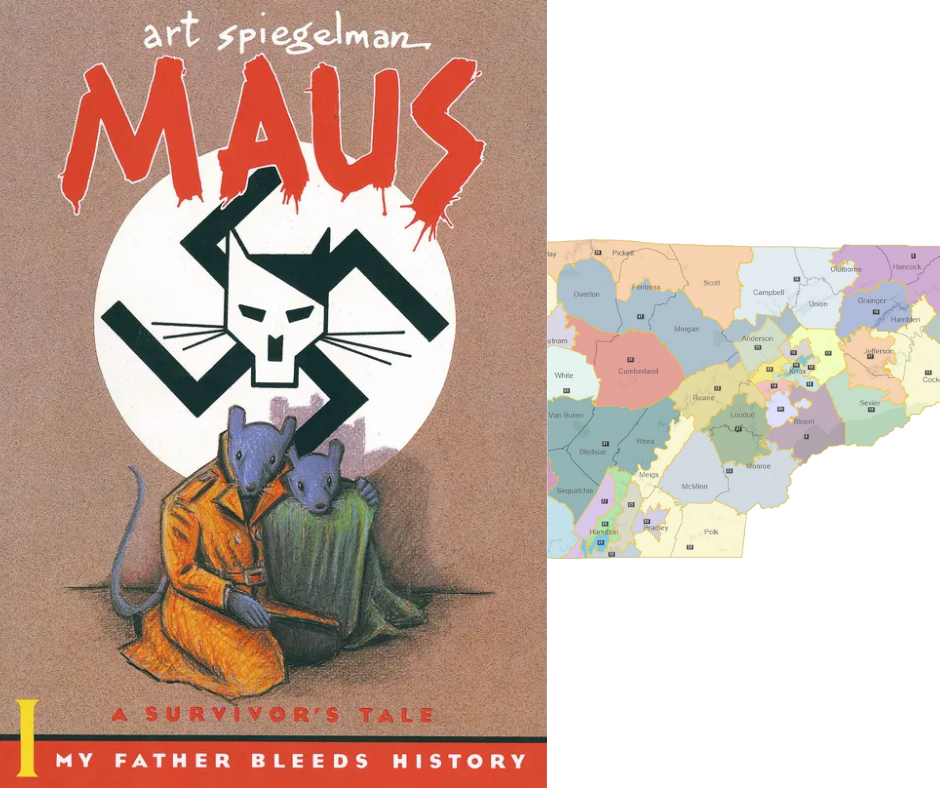Banning 'Maus' from Tennessee county's curriculum is about power and control | Opinion
Educators and parents everywhere struggle to explain genocide to children. We shouldn’t ban literature that represents it.
As a seventh grader at Brentwood Middle School, I read "Maus" along with the rest of my peers in Ms. Thompson’s English class.
That unit introduced me to discussions of morality, literature and art that continue to inspire my research on public memory of the Holocaust.
For young audiences, "Maus" introduces readers not only to the realities of the Holocaust but also the complexities of life in the legacy of violence.
Hear from Tennessee's Black Voices: Get the weekly newsletter for powerful and critical thinking columns.
Some school board members weren't even familiar with the book

Holocaust scholar, James Young, writes that graphic novels have always “raised – and dismissed – issues of decorum.” Decorum, about foul language and the single depiction of a naked female body, is precisely what concerns the school board of McMinn County.
Yet appeals to decorum in a debate to eliminate a powerful unit of Holocaust education reeks of ideological bias and reveals a fundamental distrust of students to handle the seriousness of the subject. Appeals to decorum when debating Holocaust education are steeped in ignorance and cowardice.
Banning "Maus" from the curriculum because it uses eight instances of “foul language” elides the fundamental premise of the novel. Appeals to decorum are a distraction — a non-issue that politicians can focus on in the name of family values while ignoring the importance of Holocaust education. This is especially important given the uptick in anti-Semitic violence in America in recent years.
Beyond the baseless nature of their concerns, the school board’s minutes reveal a callous disregard for teacher expertise and workloads. Several school board members clearly had no knowledge of the book they were debating to ban, such as member Tony Allman who stated incorrectly that "Maus" is “a book for the eighth grade on a third grade reading level.”
Teachers invited to the meeting described the importance of the book both to the overall curriculum design and to the ethical development of their students. "Maus" is an anchor text, meaning that numerous activities build up to understanding the book as a central component of a multi-month module. With this banning of "Maus," as Melasawn Knight explains, the “whole module would have to be rewritten.”
Hear more Tennessee Voices: Get the weekly opinion newsletter for insightful and thought provoking columns.
Educators are being forced to rewrite lessons for political reasons
Trying to develop a new multi-month module in line with state learning outcomes is a lengthy process that requires hundreds of development hours and requires teachers to teach dozens of new activities and lessons. There is no substitute to "Maus," as it represents a unique text as the only Pulitzer prize-winning graphic novel.

To force instructional designers to completely rewrite a learning module at the whim of a politically-minded school board is unnecessary. To force instructional designers to completely rewrite a module during the midst of a pandemic, when teachers are facing unprecedented pressure to maintain stable classroom environments, is cruel.
All told, the McMinn County School Board and the general public ought to trust teachers and students to handle the complexity of our history. With no replacement curriculum lined up, the erasure of "Maus" is not simply the removal of one book. It is the removal of an entire module, a slap in the face to hardworking teachers and a blatant attempt to control students’ development through appeals to an imagined “decorum.”

Your state. Your stories. Support more reporting like this.
A subscription gives you unlimited access to stories across Tennessee that make a difference in your life and the lives of those around you. Click here to become a subscriber.
As a communication and Holocaust Studies scholar, I understand the difficulty in teaching genocide to students. At the same time, I find it difficult to believe that the members of the school board are truly frightened of introducing eighth-graders to foul language in the context of a Pulitzer prize-winning text.
It is far more likely that they are afraid of losing their power to dictate acceptable art, literature and education in an educational climate fraught with heated debates over false boogeyman like Critical Race Theory. So, school board members of McMinn County, what are you really afraid of?
Natalie Bennie is a Ph.D. candidate in Communication Arts and Sciences at Penn State University and co-founder of Neo Communications Consulting. She attended Williamson County Schools for her K-12 education.
This article originally appeared on Nashville Tennessean: Tennessee school board members ban 'Maus' out of fear of losing power

